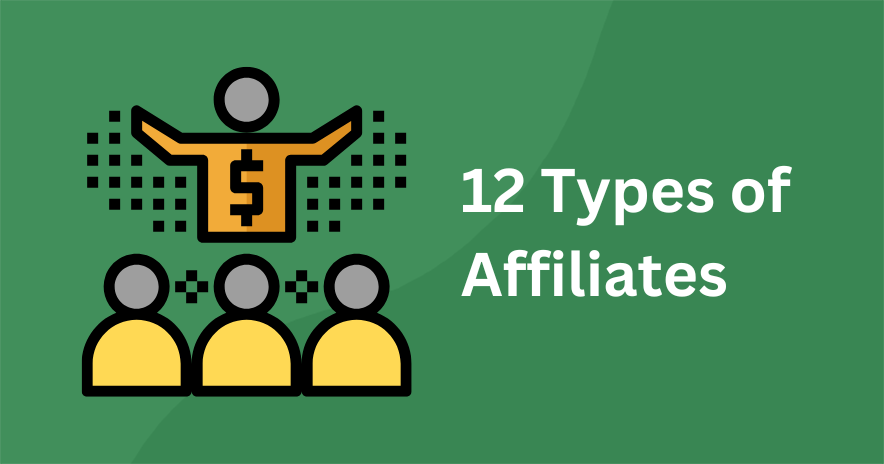How to Prevent Affiliate Fraud in 7 Different Ways

Affiliate fraud can sneak up on a business and cause unexpected financial harm. Scammers, tricksters and fraudsters do exist, and pose a real risk to anyone engaged in affiliate marketing.
As an industry, affiliate marketing is worth around $20bn. Yet every year it loses around 15% of revenue to affiliate marketing scams. So much so that in 2022 the industry could lose $3.4bn in revenue from affiliate fraud alone.
So what can you do to prevent potential losses or avoid potential harm from affiliate fraud?
In this article, we’ll give you some examples and then share 7 steps you can take to protect yourself from the dangers of fraud.
What Is Affiliate Fraud?
Affiliate fraud happens when affiliate marketers carry out fake actions to try to get genuine commissions.
These actions can range from clickjacking, malicious bots, stolen credit cards, and more. But what links them all together is an attempt to gain a legitimate commission using fraudulent means.
Wherever money can be made, there will be people that commit fraud. And so affiliate fraud isn’t something new.
How Do Affiliates Commit Fraud?
It can sometimes be hard to tell if your affiliates are engaging in fraudulent activity. But to help, here are some examples.
Click fraud
Click fraud happens when affiliates use fake visitors or bots to pretend to be legitimate visitors, manipulating their statistics.
Fraudulent purchases
Fraudulent purchases can be made using stolen credit cards, or by using someone else’s card without their knowledge. The fraudulent users will likely make the purchase, or download an app, using an affiliate link so they earn commission.
Typosquatting & URL hijacking
Typosquatting is when unscrupulous affiliates buy misspelt domain names intending to pass them off as the original brand names. And they’ll use these URLs to pick up referrals from redirections.
URL hijacking is similar, and happens when a fake URL replaces a genuine one from the search engine index. This fake URL still links to the target page but via a redirect.
Cookie Stuffing
Cookie stuffing is a technique that is used to maliciously place cookies on the user’s computer, without their permission or knowledge. Once the user visits a website, it will then track the referral for the malicious affiliate. This is because, in a lot of cases, affiliate programs will use cookies for tracking referrals.
Influencer fraud
A story by PR Week suggests more than half of all Instagram influencers engaged in a form of social media fraud in 2020. And a further survey suggested over 60% of marketers had experienced influencer fraud during their careers.
Plus, fake influencers breed fake followers. And so influencer fraud can create an untameable monster that creates ongoing problems for marketers.

7 Steps You Can Take to Prevent Affiliate Fraud
Since fraud accounts for almost 10% of lost revenue, it’s unlikely we’ll eradicate affiliate fraud any time soon. But there are steps you can take to reduce the risk and mitigate any negative effects.
1. Vet your affiliates
It may seem like common sense, but it’s important to vet and screen your affiliate partners before you engage with them. One way of doing this is by designing a registration form for affiliates to fill out.
The Coupon Affiliates plugin let you control registrations by reviewing details in a management platform. And if you’re happy, you can approve them as a registered affiliate.
As part of your evaluation of their registration, you’ll want to ensure that:
- They’ve listed their websites and social media accounts.
- They align with your brand standards.
- They don’t look like a link farm, or suspicious in any other way.
2. State your boundaries in your Terms and Conditions
Your affiliate partnership terms and conditions should be solid and robust. And they should work to protect your business from any risk of harm. You can make sure all your affiliates agree with your terms and conditions by asking them to agree to it upon registration, or you could even get them to sign a more official agreement.
3. Monitor affiliates using analytics and reporting
By running reports on your affiliates, you can look out for possible unscrupulous activity. Some of this may include:
- Highlighting any surge in orders that seems exceptionally high.
- Checking for any unusually high conversion rates or commission values.
- Reviewing affiliate URLs and click history.
The Coupon Affiliates plugin has a helpful admin dashboard that can easily create effective reports and help you to track affiliate performance.
4. Stop affiliates using their own links & coupons
Another aspect of affiliate fraud is when affiliates start using their own coupons. When they do this, the risk of forged or faked coupons gets higher.
The Coupon Affiliates plugin can help put a stop to any of your affiliates using their own coupons, by setting this as a fraud prevention feature.
5. Make sure you’re using a Web Application Firewall (WAF)
Make sure your website uses a Web Application Firewall (WAF), which will help block any bot traffic or spam on your website.
And while it can’t protect against all types of fraud, it will also act as a shield to prevent certain attacks like cross-site scripting (XSS), SQL injection, malicious bots, and cookie poisoning.
A cloud-based WAF can be easily set up for free via Cloudflare.
6. Impose restrictions using Direct Link Tracking
To really clamp down on affiliate fraud you could consider implementing direct link tracking.
Coupon Affiliates let you enable this on your affiliate program. And when you do, you’ll be able to disable all coupons and referral links. The only exception is when a customer gets referred by an approved domain that’s assigned to a coupon.
7. Create a visitors black list
Finally, another tactic you can deploy to prevent affiliate fraud is to create a “Domains Blacklist”.
This stops any visitors from your domain blacklist from getting their referral tracked or coupon applied. It will also let you block any use of affiliate coupons referred by a blocked domain.
You should also blacklist any suspicious IP addresses or users, preventing them from being tracked by your affiliate program.
Coupon Affiliates Can Help You Reduce the Risk of Affiliate Fraud
In its various forms, affiliate fraud continues to plague affiliate marketing. But there are preventative steps you can take to minimise the impact.
Plus, should any fraudulent affiliates be hiding unscrupulous activity or be on their best behaviour to start with, you can deploy management techniques to reduce the impact of fraud using the Coupon Affiliates plugin features.
To find out more about how Coupon Affiliates can support a reduction in affiliate marketing fraud, sign up for a free 7-day trial today.
Mike King is a content writer and consultant at Contentar. He specialises in writing about digital marketing, eCommerce, app development, and assistive technology.




Leave a Reply